Signs of the Times • 16 March 2016 • No. 63
Holy Week and unholy economies
A primer on economic inequality
¶ Processional. “Khen Ephran,” Coptic Orthodox hymn for Holy Week.
¶ Invocation. “Do not say to yourself, ‘My power and the might of my hand have gotten me this wealth.’” —Deuteronomy 8:17
 ¶ The earth, too, experiences the trauma of Holy week. Picture (right) of a tar sands (bituminous) oil extraction pit in Alberta, Canada.
¶ The earth, too, experiences the trauma of Holy week. Picture (right) of a tar sands (bituminous) oil extraction pit in Alberta, Canada.
¶ Call to worship. “Wa Habibi” (Good Friday hymn) sung by Fairouz.
¶ Confession. “Some people are so poor all they have is money.” —Bob Marley
¶ Intercession. “In those years, people will say, we lost track / of the meaning of we, of you / we found ourselves / reduced to I / and the whole thing became / silly, ironic, terrible.” —Adrienne Rich, “In Those Years.” Listen to a reading of the poem by Chelsea Tobin.
¶ “It's official. The global 1% of wealth holders now own more than the rest of the world combined. The gap between the richest and poorest has widened so dramatically in the past 12 months that the world's 62 wealthiest individuals now own as much as the poorest half of the global population.” —Lauren McCauley, Common Dreams
 ¶ Hymn of resolve. “Go to Dark Gethsemane.”
¶ Hymn of resolve. “Go to Dark Gethsemane.”
¶ “It is not that humans have become any more greedy than in generations past. It is that the avenues to express greed had grown so enormously.'' —former Federal Reserve Chairman Alan Greenspan, testifying 16 July 2002 to the Senate Banking Committee
¶ Economic divide by race. “In 1963, the average wealth of white families was $117,000 higher than the average wealth of nonwhite families. By 2013, the average wealth of white families was over $500,000 higher than the average wealth of African American families ($95,000) and of Hispanic families ($112,000). Put another way, white families on average had seven times the wealth of African American families and six times the wealth of Hispanic families in 2013.” —Urban Institute
¶ Words of assurance. “May the angels protect you, trouble neglect you, / And mercy direct you when it’s time to go home. / May you always have plenty, your glass never empty, / And know in your belly you’re never alone.” —“Never Alone,” performed by Lady Antebellum and Jim Brickman
¶ Income inequality in the US, visualized in a way that will rock your socks. (6:23 minutes. Thanks, Evelyn.)
¶ American Gospel. “Greed, for lack of a better word, is good. Greed is right. Greed works. Greed clarifies, cuts through, and captures, the essence of the evolutionary spirit. Greed, in all of its forms; greed for life, for money, for love, knowledge, 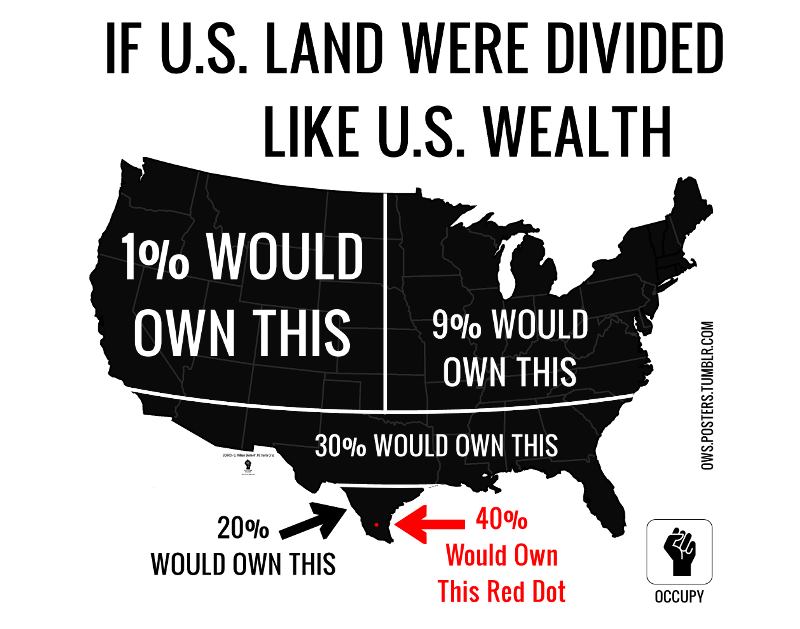 has marked the upward surge of mankind.” —Stockbroker Gordon Gecko, fictional character played by Michael Douglas, in the 1987 film “Wall Street”
has marked the upward surge of mankind.” —Stockbroker Gordon Gecko, fictional character played by Michael Douglas, in the 1987 film “Wall Street”
¶ Faith in trickle-down [economics theory] is a bit like feeding race horses superior oats so that starving sparrows can forage in their dung. — John Kenneth Gailbraith
¶ Among the findings of a 2015 research study (“Is the United States Still the Best Country in the World? Think Again“) are the following:
•America’s child poverty levels are worse than in any developed country anywhere.
•Ranks last in median wealth per adult among 27 other high-income countries.
•36th out of 162 countries in terms of people living below the poverty line.
•Fourth highest wealth inequality in the world (slightly better than Chile, Mexico and Turkey. —Jill Hamburg Coplan, Fortune magazine and Christopher Ingraham, Washington Post
¶ Music for Holy Week. “God Almighty here I am / Am I where I ought to be / I’ve begun to soon descend / Like the sun into the sea / And I thank my lucky stars / From here to eternity / For the artist that you are / And the man you made of 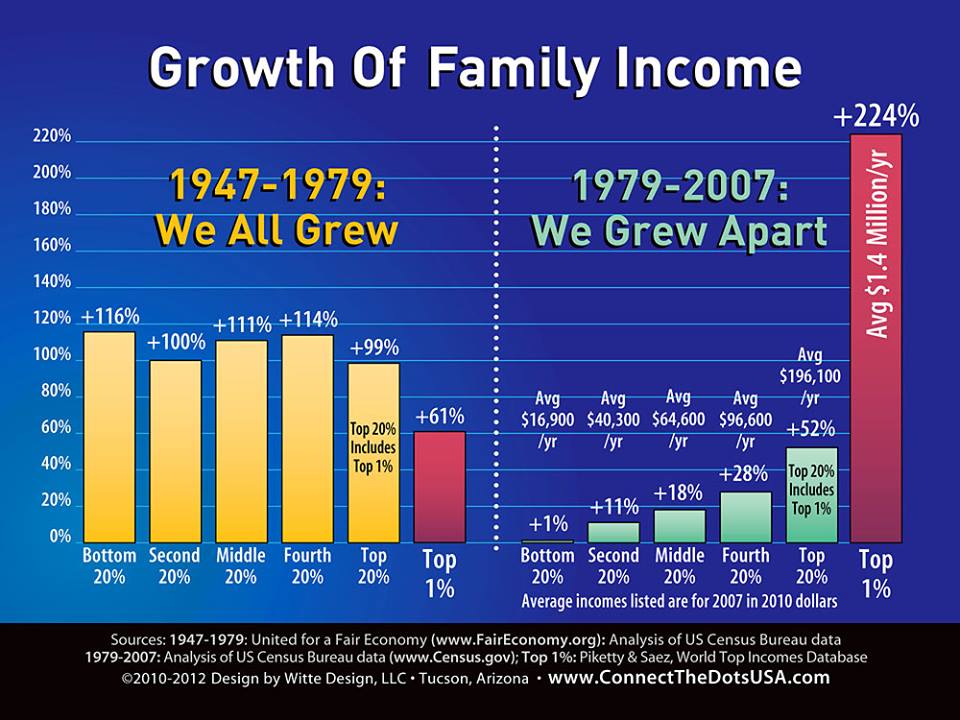 me.” —Kris Kristofferson, “Feeling Mortal”
me.” —Kris Kristofferson, “Feeling Mortal”
¶ From 1947 to 1979 the income of the bottom fifth of Americans rose by 122%. From the introduction of Reaganomics in 1979 to 2009 the income of the top 1% rose by 270% while the other 99%’s income remained stagnant. —inequality.org
¶ Locate yourself. The Global Rich List website shows you where you rank on the world's economic ladder with sobering specificity. See where you stand.
¶ See “35 astounding facts about inequality that will fry your brain.” —Larry Schwartz’s “35 soul-crushing facts about American income inequality,” Salon
¶ “The godless Galileans feed our poor in addition to their own.” —Roman Emperor Julian, speaking of the early Christian community, considered atheists because of their rejection of the pantheon of gods in the ancient world
¶ Robert Reich, former Labor Secretary and now Professor of Public Policy at the University of California Senior Fellow at the Blum Center for Developing Economies, has mastered the art of brief illustrated videos to explain economic matters to common folk like us. View just these three for a crash course.
•“The 7 Biggest Economic Lies,” with Robert Reich. (2:47)
•“What are the 3 biggest economic myths propagated by the moneyed interests? (2:34)
•“The war on the poor and working families.” (2.25)
¶ “Once we recognize that the most basic questions about economic systems were entwined with biblical religion and  fought over as an intrinsic aspect of living religiously, we gain leverage to criticize and evaluate economic systems today.” —Norman Gottwald, The Hebrew Bible in Its Social World and in Ours
fought over as an intrinsic aspect of living religiously, we gain leverage to criticize and evaluate economic systems today.” —Norman Gottwald, The Hebrew Bible in Its Social World and in Ours
¶ Music for Holy Week. “Little bee sucks the blossom / big bee gets the honey / poor man picks the cotton / rich man gets the money.” —Bob Wills and the Texas Playboys, “Take Me Back to Tulsa”
¶ In a 2014 study by Sorapop Kiatpongsan and Michael I. Norton, researchers “asked about 55,000 people from 40 countries to estimate how much corporate CEOs and unskilled workers earned. Then they asked people how much CEOs and workers should earn. The median American estimated that the CEO-to-worker pay-ratio was 30-to-1, and that ideally,  it’d be 7-to-1. The reality? 354-to-1. Fifty years ago, it was 20-to-1.” —Nicholas Fitz, Scientific American
it’d be 7-to-1. The reality? 354-to-1. Fifty years ago, it was 20-to-1.” —Nicholas Fitz, Scientific American
¶ Inequality.org, a project of the Institute for Policy Studies, has a large collection of helpful graphic information, as does United for a Fair Economy.
¶ “. . . when God forbids oppression of the poor in the Book of the Covenant [Exodus 22:21-24], it is the first time the Scriptures explicitly affirm that God becomes angry.” —Thomas D. Hanks, God So Love the Third World
¶ Textbook case of biblical illiteracy. “When the pope criticizes an entire economic system and is negative about it, he is indulging in politics, and I don’t think he should. I personally do not want my spiritual life mixed up with my political life. I go to church to save my soul.” — Stuart Varney, Fox news commentator, criticizing Pope Francis’ statement that “unfettered capitalism is a new tyranny”
¶ The Walmart-owning Walton family alone has more wealth than 42% of American families combined.
¶ Music for Holy Week. “Lamentations of Jeremiah I,” Choir of King’s College, Cambridge.
¶ “While debtors prisons were abolished in the 1800s and Supreme Court cases found that jailing people because they can’t pay debts without assessing their ability to pay violates the constitution, these practices have seen a resurgence across the country.” So much so that on Monday “officials at the Department of Justice (DOJ) will send a letter to chief 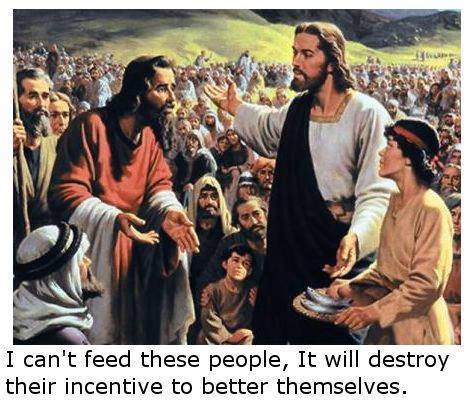 justices and court administrators across the country warning them against operating modern-day debtors’ prisons.” —Bryce Covert, thinkprogress.org
justices and court administrators across the country warning them against operating modern-day debtors’ prisons.” —Bryce Covert, thinkprogress.org
¶ Others aren't happy with Roman Catholic Pope Francis’ attention to the poor. Said one souvenir seller near St. Peter’s, “He is always talking about the poor and so the poor come to the Vatican and they have no money to spend.”
¶ “The superfluities of the rich are the necessaries of the poor. Those who retain what is superfluous possess the goods of others.” —Saint Augustine
¶ “The mainstream consensus has long been that a growing economy raises all boats, to much better effect than incentive-dulling redistribution. . . . But now . . . research by economists at the International Monetary Fund suggests that income inequality slows growth, causes financial crises and weakens demand. . . . A survey for the World Economic Forum meeting at Davos pointed to inequality as the most pressing problem of the coming decade (alongside fiscal imbalances).” —Zanny Minton Beddoes, The Economist
¶ “Reading the Bible with the eyes of the poor is a different thing from reading it with a full belly.” —Jürgen Moltmann, The Church in the Power of the Spirit
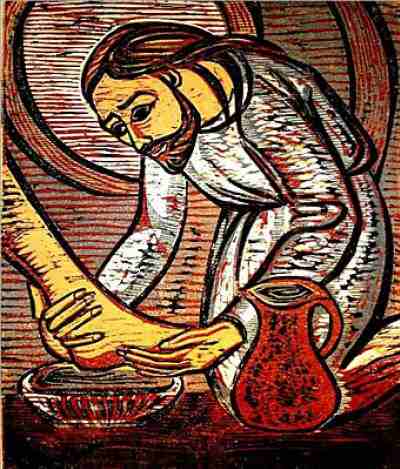 ¶ Music for Holy Week. “O all you who walk by on the road, pay attention and see: / if there be any sorrow like my sorrow. / Pay attention, all people, and look at my sorrow: / if there be any sorrow like my sorrow.” —Tomas Luis de Victoria (1548-1611), "Tenebrae Responsories – 14 – O vos omnes," performed by “The Sixteen”
¶ Music for Holy Week. “O all you who walk by on the road, pay attention and see: / if there be any sorrow like my sorrow. / Pay attention, all people, and look at my sorrow: / if there be any sorrow like my sorrow.” —Tomas Luis de Victoria (1548-1611), "Tenebrae Responsories – 14 – O vos omnes," performed by “The Sixteen”
¶ “Former president Jimmy Carter said Tuesday on the nationally syndicated radio show the Thom Hartmann Program that the US is now an ‘oligarchy’ in which “unlimited political bribery” has created ‘a complete subversion of our political system as a payoff to major contributors.’” —Jon Schwarz, The Intercept
¶ Old world religion. “You know as well as we do that right, as the world goes, is only in question between equals in power, while [in situations of unequal power] the strong do what they can and the weak suffer what they must.” —5th century BCE Greek historian Thuycydides
¶ Preach it. “Speak up for people who cannot speak for themselves. Protect the rights of all who are helpless. Speak for them and be a righteous judge. Protect the rights of the poor and needy.” —Proverbs 31: 8-9, Today’s English Version
¶ Music for Holy Week. “The Passion,” Fairouz
¶ The State of our disunion. Noam Chomsky explains, in one sentence, how the interests of private capital undermine the public good, fostering survival-of-the-fittest ethics: “That’s the standard technique of privatization: defund, make sure things don’t work, people get angry, you hand it over to private capital.”
¶ Robin Hood in Reverse: Climate Change Takes from Poor, Gives to Rich. “A new study finds that climate change is  triggering a massive reallocation of resources to the world's wealthiest countries.” —Nika Knight, Common Dreams
triggering a massive reallocation of resources to the world's wealthiest countries.” —Nika Knight, Common Dreams
¶ Call to the table. “For now I ask no more than the justice of eating.” —Pablo Neruda, Chilean poet and diplomat whose death was likely ordered by Chilean dictator Augusto Pinochet in 1973
¶ In our day, “poor people find themselves denigrated and demeaned in ways that shock conscience. Former South Carolina Lt. Governor Andre Bauer once likened them to stray animals one feeds at the back door. Fox ‘News’ pundit John Stossel sees them as the enemy in a battle between ‘the makers and the takers.’ Nebraska Attorney General Jon Bruning compares them to scavenging ‘raccoons.’ Ann Coulter says welfare creates ‘irresponsible animals.’” —columnist Leonard Pitts
¶ Music for Holy Week. “Dido’s Lament,” from the aria “When I am laid in earth” in Henry Purcell’s opera “Dido and 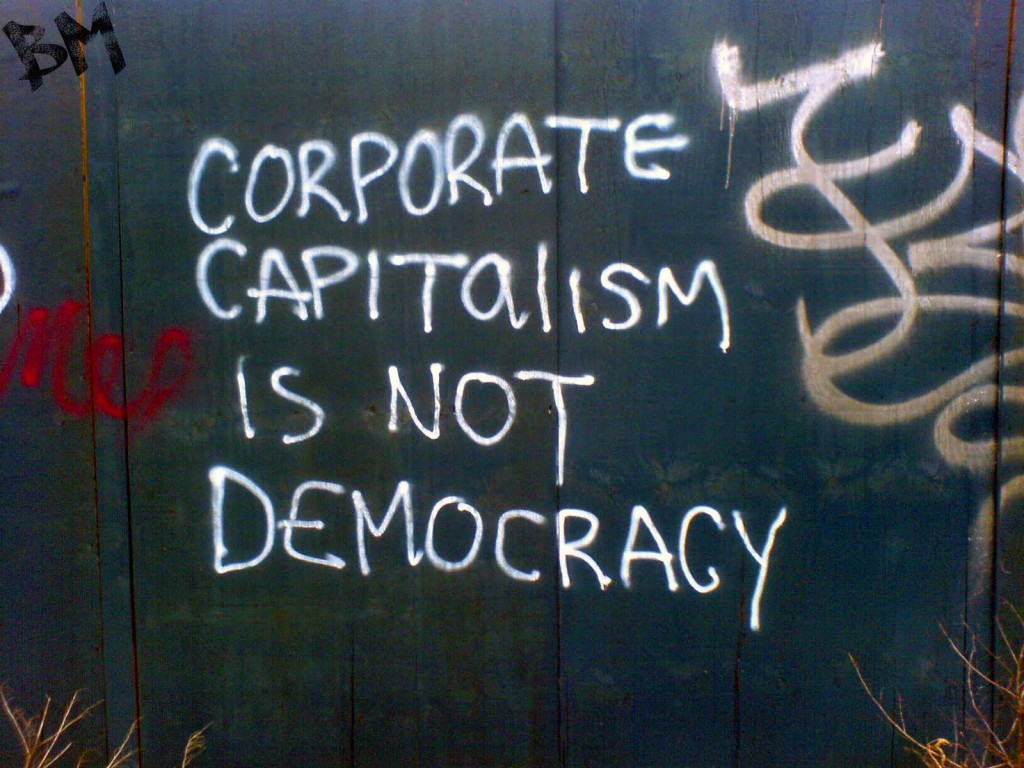 Aeneas,” performed by Alison Moyet.
Aeneas,” performed by Alison Moyet.
¶ If Bill Gates could find a way to spend $1 million a day, it would take him 218 years before he bounced a check. —Allison Jackson, GlobalPost
¶ In this animated video Wesley P.P. Hall explains the root cause (a “mutant form of capitalism”) of war, poverty and terrorism in under two minutes.
¶ “The comfort of the rich depends upon an abundant supply of the poor.” —Voltaire, 18th century French historian and philosopher
¶ You don’t necessarily think of Forbes magazine (“reliable business news and financial information”) as the place to turn to for prophetic economic critique, as in Drew Hansen’s “Unless It Changes, Capitalism Will Starve Humanity By 2050.”
¶ And then there’s this, from Bloomberg News, crystal ball for the one-percenters and their wannabees. “Goldman Sachs Says It May Be Forced to Fundamentally Question How Capitalism Is Working.” —Joe Weisenthal
¶ Altar call. "Nobody gets to heaven without a letter of reference from the poor." —Rev. Dr. James Forbes
 ¶ Music for Holy Week. “Golgotha,” Logos Music.
¶ Music for Holy Week. “Golgotha,” Logos Music.
¶ "There are two modes of invading private property; the first, by which the poor plunder the rich . . . sudden and violent; the second, by which the rich plunder the poor, slow and legal." —John Taylor, "An Inquiry into the Principles and Policy of the Government of the United States" (1814)
¶ What can I do, you may ask, about economic inequality? Maybe the first place to start is to transfer some part of your savings or retirement funds (however meager) into community investing, in community development banks or microlending organizations. Get your congregation to do this, too. And lobby your denominational body (or labor union or civic club or university) to do the same. —Read the “Resolution in support of community investing: Putting a portion of household, congregational and denominational money where our mouths are.” At the end of that article are brief stories about two congregations’ choice to do this.
¶ Benediction. “Lo, I Am With You,” John Bell, performed by the Wild Goose Worship Group.
¶ Recessional. One day we’ll have Easter Sunday recessionals like this.
¶ Lectionary for Sunday next. “But Mary stood weeping, weeping, weeping, outside the tomb.” —see Ken Sehested’s “Choral reading of John 20:1-18," a script of John’s resurrection account for 8 voices”
# # #
Featured this week on prayer&politiks:
• “Refuge in the shadow,” a collection of Scripture for Holy Week, on "darkness" and "shadow" as the place of God's abiding presence
• “Choral reading of John 20:1-18,” a script of John’s resurrection account for 8 voices
• “Resolution in support of community investing: Putting a portion of household, congregational and denominational money where our mouths are.” Something you can do to rebuild a holy economy.
• “Come to the Waters: Litany of Confession and Pardon,” inspired by Isaiah 55

©Ken Sehested @ prayerandpolitiks.org. Language not otherwise indicated above is that of the editor. Don’t let the “copyright” notice keep you from circulating material you find here (and elsewhere in this site). Reprint permission is hereby granted in advance for noncommercial purposes.
Your comments are always welcomed. If you have news, views, notes or quotes to add to the list above, please do. If you like what you read, pass this along to your friends. You can reach me directly at klsehested@gmail.com.


 ¶ The earth, too, experiences the trauma of Holy week. Picture (right) of a tar sands (bituminous) oil extraction pit in Alberta, Canada.
¶ The earth, too, experiences the trauma of Holy week. Picture (right) of a tar sands (bituminous) oil extraction pit in Alberta, Canada. ¶ Hymn of resolve. “
¶ Hymn of resolve. “ has marked the upward surge of mankind.” —Stockbroker Gordon Gecko, fictional character played by Michael Douglas, in the 1987 film “Wall Street”
has marked the upward surge of mankind.” —Stockbroker Gordon Gecko, fictional character played by Michael Douglas, in the 1987 film “Wall Street” me.” —Kris Kristofferson, “
me.” —Kris Kristofferson, “ fought over as an intrinsic aspect of living religiously, we gain leverage to criticize and evaluate economic systems today.” —Norman Gottwald, The Hebrew Bible in Its Social World and in Ours
fought over as an intrinsic aspect of living religiously, we gain leverage to criticize and evaluate economic systems today.” —Norman Gottwald, The Hebrew Bible in Its Social World and in Ours it’d be 7-to-1. The reality? 354-to-1. Fifty years ago, it was 20-to-1.” —
it’d be 7-to-1. The reality? 354-to-1. Fifty years ago, it was 20-to-1.” — justices and court administrators across the country warning them against operating modern-day debtors’ prisons.” —
justices and court administrators across the country warning them against operating modern-day debtors’ prisons.” — ¶ Music for Holy Week. “O all you who walk by on the road, pay attention and see: / if there be any sorrow like my sorrow. / Pay attention, all people, and look at my sorrow: / if there be any sorrow like my sorrow.” —Tomas Luis de Victoria (1548-1611), "Tenebrae Responsories – 14 – O vos omnes," performed by “
¶ Music for Holy Week. “O all you who walk by on the road, pay attention and see: / if there be any sorrow like my sorrow. / Pay attention, all people, and look at my sorrow: / if there be any sorrow like my sorrow.” —Tomas Luis de Victoria (1548-1611), "Tenebrae Responsories – 14 – O vos omnes," performed by “ triggering a massive reallocation of resources to the world's wealthiest countries.” —
triggering a massive reallocation of resources to the world's wealthiest countries.” — Aeneas,” performed by
Aeneas,” performed by  ¶ Music for Holy Week. “
¶ Music for Holy Week. “